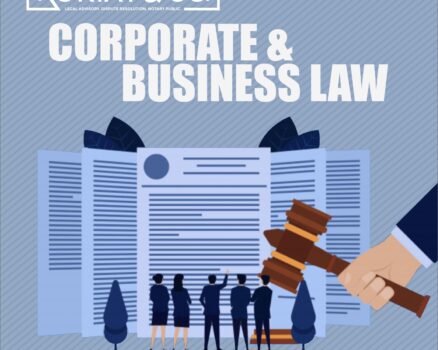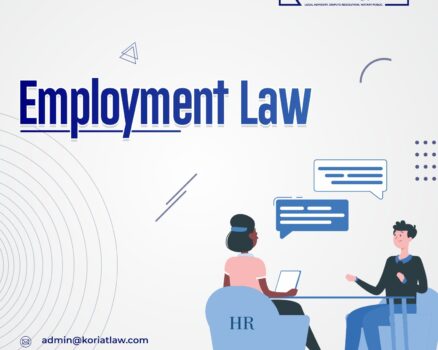
Introduction
The Money Lending business in Nigeria has witnessed a paradigm shift particularly in the way money lenders do their business. Moreso, is the aggressive campaign by the Federal Competition Consumer Protection Commission (“FCCPC”) in collaboration with other law enforcement agencies to bring sanity into the lending landscape. The FCCPC is clothed with the powers to initiate strategy to prohibit unfair business practices in a bid to protect consumer rights in Nigeria.
In this article, we shall briefly examine the commendable steps taken so far by FCCPC with a view to improving the business of money lending in Nigeria.
FCCP’S Regulatory Actions against Money Lender’s Companies
- Ceaseless Aggressive Enforcement actions taken on Unregistered Money Lenders
In our previous updates on fintech lending law in Nigeria: Koriat’s Update on Fintech Lending Law in Nigeria (January 2022) and Koriat’s Update on Fintech Lending Law in Nigeria (March 2022), we reported the Joint Committee’s enforcement against violation of consumer rights and unfair practices in the money lending industry by unregistered, unlicensed and unethical money lenders in Nigeria. Also, the FCCPC has also embarked on aggressive supervisions, shut down illegal businesses, issued interim regulations, obtained court orders to freeze bank accounts of defaulters, engaged mobile applications companies (Google and Apple) to shut down certain mobile applications and directed commercial banks to freeze the bank accounts of fintech companies that are “infringing and abusive” in their operations.
On 21st May 2022, the Federal Competition Consumer Protection Commission (“FCCPC”), and the Nigerian Data Protection Bureau announced the Establishment of a Joint Mutual Enforcement Desk. This Desk was created to address crucial data protection to ensure consumers and businesses derive the protection and benefits that were inherent in economic expansion that technology and digital markets enhanced.
As at 23rd May 2022, in an interview session with PunchNews, the Director General and Vice Chairman of FCCPC, Mr. Babatunde Irukera stated that 50 Bank Accounts belonging to illegal money lending companies have been frozen by the law enforcement agencies, 12 illegal Money lending companies’ applications have also been taken down from Google Play Store. This shows the FCCPC’s unyielding commitment to their duties in curtailing illegal activities and violations of consumer’s rights in the money lending space.
- Introduction of a regulatory enforcement guideline on Money lending in Nigeria
In line with its duty to enforce certain rights of consumers pertaining to money lending in Nigeria, the FCCPC has promised to publish its enforcement guidelines on the money lending space soon. These guidelines are said to include further regulatory actions, consider the interest rate calculation and loan repayment strategies of moneylender which must be transparent fair and must not damage consumers reputations.
- The Illegal Activities and Lending Malpractices to be determined by FCCPC on Money Lenders for prosecution
It is evident that the FCCP and the allied enforcement agencies, in carrying out their investigation on the illegal activities of money lenders, will look at certain areas which the money lenders have defaulted to determine whether or not to take legal actions against them in the Nigerian courts.
The following are areas FCCPC would look at in their investigation process.
i. Failure to register a money lender company with the CAC;
ii. Failure to obtain the required state license for money lending business.
iii. Violation of borrowers’ (or other persons’) privacy rights through naming and shaming customers, calling or messaging debtors’ relations without their consent, and so on.
iv. Charging excessive interests on loans;
v. Failure to provide loan agreements and statement of loan accounts;
vi. Failure to have a registered/business address within Nigeria or relocation of business from registered address without notifying the licensing authority;
vii. Doing money lending business with proceed of crime or facilitating money laundering activities;
viii. Engaging in other conducts that are deprave, unfair and contradictory to best practices in lending business.
- The Risks Associated with Illegal Activities and Lending Malpractices
Now, the risk associated with Illegal Money lending malpractices are numerous, which may give rise to civil or criminal liabilities for money lenders, depending on the nature of infraction and the claims or charges preferred against them.
Below are some of the risks associated with illegal acts and lending malpractices:
i. Unending police/regulatory invitation and interrogations relating to business activities;
ii. Police/regulatory raid of money lender’s business premises;
iii. Lockdown of business premises pending investigation or compliance with regulatory directives;
iv. Arrest of money lenders’ management staff members and directors;
v. Seizure of assets and working tools such as computers, cars, cash, files, storage devices, etc.;
vi. Restriction of business bank accounts of the money lender company through regulatory orders to the money lenders’ bankers;
vii. Forfeiture of money lender’s funds that are attributed to money laundering or regarded as proceed of crime;
viii.Suspension of Mobile Apps’ operation upon regulators’ orders to global applications companies (such as Google, Apple, etc.);
ix. Refund of excessive interest charges to borrowers;
x. Payment of compensation to borrowers on the directive of regulators or court of law;
xi. Imposition of fines by regulators for violations;
xii. Imposition of jail term on directors and management staff of money lending company upon conviction by a court of law.
Conclusion
It would seem that it is no longer business as usual as the FCCPC has embarked on an aggressive campaign to ward off illegal money lenders companies engaging in unwholesome and unethical practices with a view to protecting the interest of the borrowers.
Amongst many of the allegations levelled against Money Lenders Companies are that the promoters were lending money with unregistered business name which is an illegal activity (see how to register a company with the Corporate Affairs Commission) and failed to obtain the necessary operational licence provided for those seeking to do lending businesses in any part of Nigeria.




